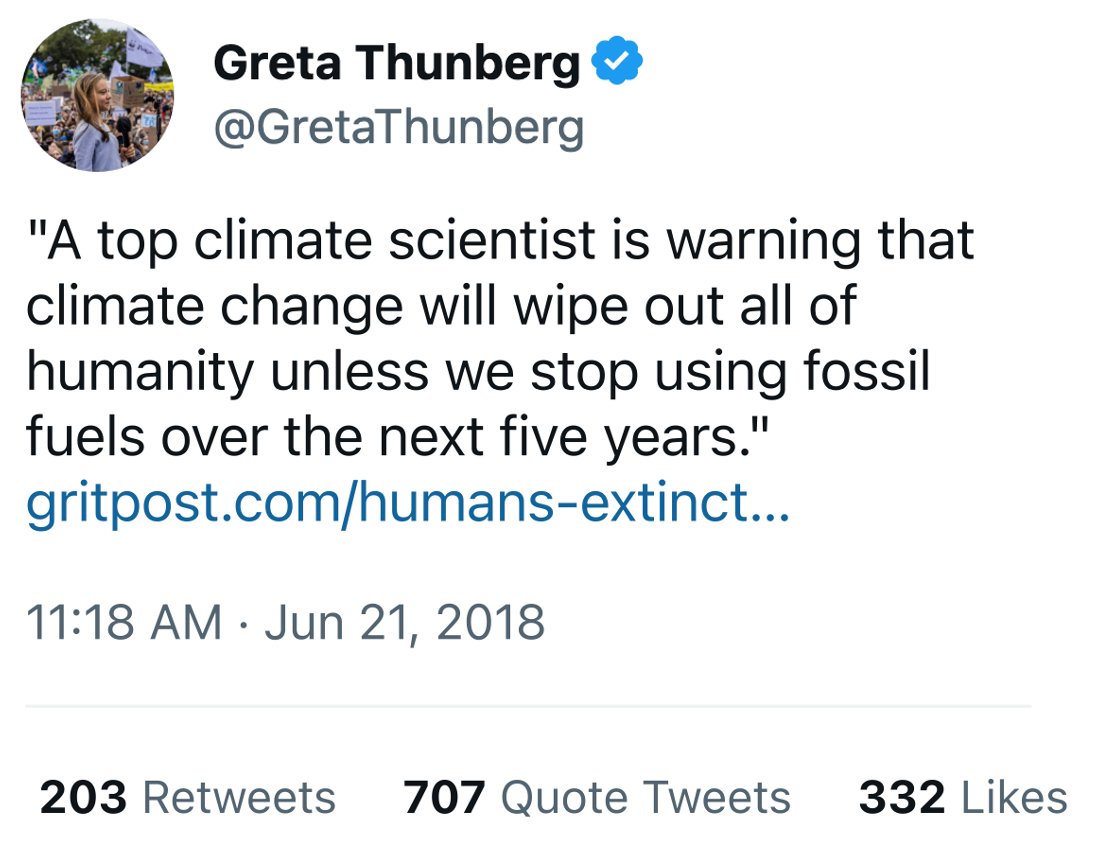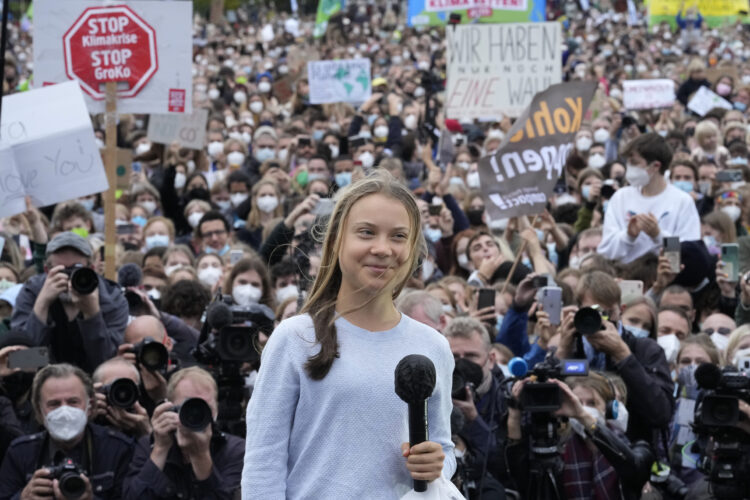Five years ago, Swedish climate activist Greta Thunberg endorsed a pretty serious prediction. On June 21, 2018, Thunberg tweeted a quote from an article published in the Grist – an anti-fossil fuel publication – warning “that climate change will wipe out all of humanity unless we stop using fossil fuels over the next five years.”
Today marks the five-year anniversary of Thunberg’s doomsday alarm. A pretty serious prediction the aspiring activist appears to have reconsidered since she’s deleted the infamous tweet:
Subscribe for more exclusive content available to Valuetainment Members only!
Despite the doomsday prediction, the 20-year old is alive and well. Between the time spent focusing on her twitter battles with influencer Andrew Tate and her high school graduation, Thunberg can also be found promoting her new work: “The Climate Book.” In it, she claims to have “gathered the wisdom of over one hundred contributors to highlight the many different crises we face and equip us with the knowledge we need to avoid a climate disaster.”
I’m so pleased to share that The Climate Book is now available in the USA and Canada! I have gathered the wisdom of over one hundred contributors to highlight the many different crises we face and equip us with the knowledge we need to avoid a climate disaster. 1/2 pic.twitter.com/z2AD32Oac1
— Greta Thunberg (@GretaThunberg) February 14, 2023
Interestingly, the article (which was also deleted) Thunberg cited to for her doomsday prediction was recycling notes from a presentation given by James Anderson, a Harvard University professor. Contrary to Thunberg’s misinterpretation, the professor didn’t claim humanity would be wiped out but rather that the o-zone layer would be beyond repair if we didn’t implement extreme carbon emission regulations.
Anderson claimed that carbon dioxide levels in Earth’s atmosphere resembled a period in time over 12 million years ago when Earth had no ice. According to the professor, there was no chance the Arctic would have ice in 2022 which much like Thunberg’s prediction, wasn’t the case. However, false predictions did not prevent Anderson from advocating for world-wide strict climate regulations leading to a global ban on industrial gas chlorofluorocarbons.
The constant disaster alarms are concerning but what is more unnerving is the stream of scientists and social media activists who make predictions and experiment but refuse to change their theory when they’re wrong. Instead, their failures go unacknowledged as they continue to promote false narratives under the guise of social justice.
Patrick Bet-David addressed the issue on the PBD Podcast this week with author, comedian, and social commentator – Konstantin Kisin. The pair discussed how social media rewards false ideas that sound good while punishing true ideas: “Social media creates the eyeballs. Let me get a little bit of attention and that’s causing other people to do the same because it’s getting attention.”
During their discussion regarding recent transgender sports legislation, Kisin pointed out: “To get people to do something terrible but think they’re good, you need ideology.” In his book, An Immigrant’s Love Letter to the West, Kisin highlighted the tendency to get political opinions from celebrities, like “eco-warrior” Thunberg, who aren’t “remotely qualified to give an opinion on anything other than pretending to be fictional characters and reading lines penned by other people.” Kisin also wrote about how woke culture created the tendency to follow activists like Thunberg who promote false truths we should believe because “they are morally superior beings who are masters of the virtue signal.”
Listen to PBD and Kisin address how victimhood became a currency in woke culture and more HERE.
But, thanks to the false doomsday prediction, we can look forward to future Tate v. Thunberg twitter duels as Tate continues to advocate for his innocence.


















Add comment